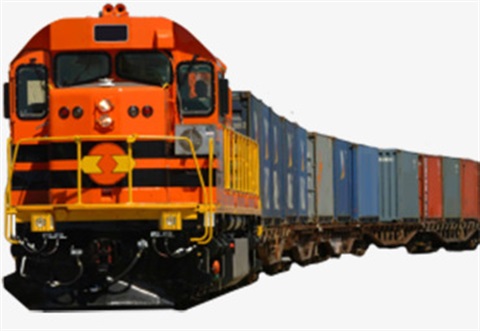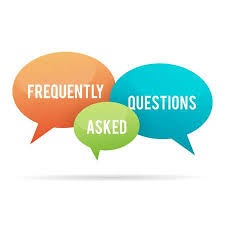Train Complaint FAQs

There is a non-moving train that has been blocking the roadway for a long period of time, who can I contact?
Call 911.
Yes that's right, call 911. The 911 operator has the information to directly route a call to the proper contacts to get the road crossing unblocked. Tell the 911 dispatcher it is a non-emergency so they can call the proper contacts.
If you are having trouble with a train that routinely blocks a roadway for long periods of time but is NOT CURRENTLY blocking a road you can call the Federal Railroad Administration Hot Line: (800) 724-5993
FRA recommends that railroads work cooperatively with state and local officials to eliminate or minimize the impact of blocked crossings wherever possible. Contact the Federal Railroad Administration to report the complaint.
There are no federal laws that regulate the length of time a train may block a grade crossing. Such a law could have the undesirable effect of causing a railroad to violate other federal safety rules.
Georgia § 46-8-197. Legal responsibility of member of train crew, yard crew, or engine crew for occupying or blocking street, road, or highway grade crossing pursuant to employer's order
No member of a train crew, yard crew, or engine crew of a railroad common carrier shall be held personally responsible under, or found guilty of violating, any state laws or municipal ordinances regulating or intended to regulate the occupying or blocking of any street, road, or highway grade crossing by engines or passenger or freight cars, upon reasonable proof by the crew member that the occupying or blocking of the grade crossing was necessary to comply with the orders or instructions, either written or oral, of his employer or of the officers or supervisory officials of the company owning the railroad over which the engine or cars are operated; provided, however, that this Code section shall not relieve the employer or railroad company from any responsibility placed upon such employee or railroad company by any such state laws or municipal ordinances.
Ga. Code Ann. § 46-8-197 (2012)
Federal Railroad Administration
61 Forsyth St SW
Suite 16T20
Atlanta, GA 30303-3104
Phone: (404) 562-3800
Hot Line: (800) 724-5993
How do I get a crossing closed?
For crossings located on public roads, the road owner/local government should be contacted and advised of your concerns. Any local government can negotiate directly with the railroad proper to achieve such closures. In fact the railroad companies along with other railroad interests and the Federal Railroad Administration began an initiative back in the early 1990’s to close approximately 25% of all at-grade railroad crossings nationwide. The Department, with a match from the corresponding railroad, can provide a monetary cash incentive of up to $7500 to a local government for the closure of a single crossing. With respect to private crossings, the Department is prohibited from participating in negotiations to close private crossings. Such negotiation should take place between the railroad and the property owner, directly. You should also provide a map showing the exact location, Railroad Inventory Number (if known) and a photograph of the location you wish to be closed.
Requests for information regarding public crossing closures or railroad contact information should sent to:
Georgia Department of Transportation
600 West Peachtree St, 10th Floor
Atlanta, GA 30308
Attn: Railroad Crossing Program Manager
How do I get a whistle ban / quiet zone in my area?
The public authority in your area may establish a whistle ban or quiet zone by following the procedures established by the Federal Railroad Administration (FRA) in the Train Horn Final Rule as amended on August 17, 2006 Ref: 49 CFR part 222. Information on this procedure can be found at the FRA website or by contacting the GDOT Utilities Railroad Crossing Engineer.
How do I get gates at a railroad crossing?
No entity, public or private, is precluded from negotiating directly with the corresponding railroad to have train-activated warning devices installed at a particular crossing provided the requesting entity and/or the railroad are willing to fund the installation. Crossings located on public roads (i.e. state routes, county roads or city streets) are eligible for federal funding based on a priority basis. Crossings located on private property or drives are not eligible for this funding and any negotiations for active warning devices would be between the property owner and the railroad.
Upon written request, this office will conduct a Highway-Rail Engineering Analysis to determine the status of a said public crossing as it relates to the other 7,000+ public at-grade crossings statewide. If the investigation reveals the subject crossing as one of the state’s highest priorities, then a project will be initiated. For investigations resulting in a crossing being ranked well down the list, this office will do its best to provide an approximate timeframe for when the location may be eligible for inclusion in the federal program. However no guarantees are made since information affecting a crossings priority standing can change from year to year causing it to move up or down on the list.
Written requests for investigations on public roads should be sent to:
Georgia Department of Transportation
600 West Peachtree St, 10th Floor
Atlanta, GA 30308
Attn: Railroad Crossing Program Manager
The gates are down but there is no train coming, what should I do?
O.C.G.A. Section 40-6-140 prohibits proceeding around lowered crossing gates. If gates are down, please call the 1-800 number provided at the crossing (Example of Emergency Contact Number Information) and notify the railroad of the situation. Then proceed to a different location to cross. If no 1-800 number is provided, proceed to a different location to cross and notify the local law enforcement office of the situation.
There are no gates but the lights are flashing and I do not see a train, what should I do?
In accordance with O.C.G.A Section 40-6-140, a person shall stop within 50 feet but not less than 15 feet from the nearest rail and shall not proceed until he/she can do so safely, when:
- A clearly visible electric or mechanical signal device gives warning of the immediate approach of a train
- A crossing gate is lowered or a human flagman gives or continues to give a signal of the approach of the passage of a train
- An approaching train is plainly visible and is in hazardous proximity to such crossing
What do I do about a rough crossing?
For matters related to the maintenance of at-grade railroad crossings on county roads or city streets, the appropriate local government shall be notified of the situation. It is the responsibility of the local government to coordinate with the corresponding railroad to address the matter. In the event the local government and respective railroad can not resolve the issue, the local government may appeal this matter to the Georgia Department of Transportation for review and further action in accordance with O.C.G.A Section 32-6-202.
For matters related to the maintenance of at-grade railroad crossings located on state routes, verbal or written complaints should be directed to the respective GDOT District Utilities Office. The correspondence should document the complaint by including the following information as a minimum; complainant’s full name, mailing address, phone number, date, time, county, route number, road name, approximate location and details on the type of complaint.
The appropriate District Utilities Engineer and railroad entity shall make all necessary attempts to resolve the maintenance issue. In the event the issue cannot be resolved, the District Utilities Engineer shall forward all information and documents to the State Utilities Engineer for review and further action in accordance with O.C.G.A. Section 32-6-202.
How can I call a railroad company?
For a list of Georgia railroad company contacts click here.(PDF, 189KB)
